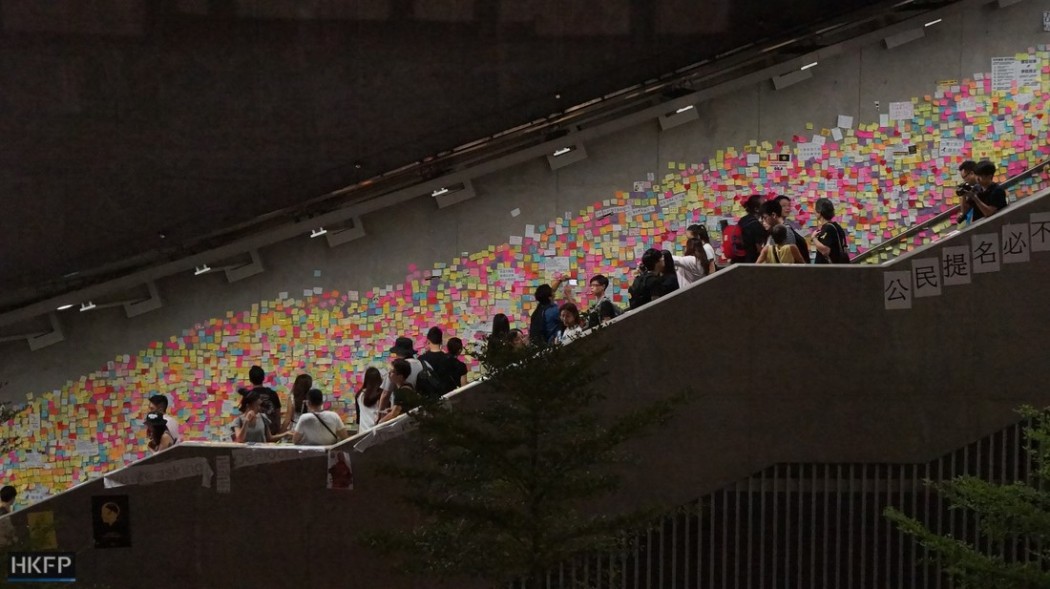Outgoing University of Hong Kong President Peter Mathieson said he has no regrets about visiting Admiralty during the 2014 Umbrella Movement, calling it “a defining moment” of his presidency.
Mathieson resigned in February ahead of his contract’s scheduled date of completion in 2019 in order to take up the top post of Principal and Vice-Chancellor at the University of Edinburgh.

He will be succeeded by Chinese-American scholar Zhang Xiang, who was appointed as the vice-chancellor of the University of Hong Kong following a meeting of the school’s governing council last Friday.
In his final end-of-year message to the school sent to students and alumni on Wednesday, Mathieson said had “no regrets” about his decision “to go to Admiralty on that famous night, 2nd October 2014, together with Joseph Sung of CUHK.” Mathieson visited the site on October 2, days after tear gas was fired on protesters.
Mathieson said that it was “a defining moment” of his presidency and was delighted if he and Sung played a role in preventing escalation.

“In 2014, my first year in office, the University was at the centre of controversy because of the participation of some of our staff and students in the ‘Occupy’ protests,” Mathieson said.
One of the co-founders of Occupy Central, Benny Tai, is a law professor at the University of Hong Kong, while many students at the university were on the frontlines of the movement, such as activist Alex Chow.
“As the relatively new leader of the University at that time, my challenge was to adhere to my own principles and those of the University, to respect freedom of speech whilst also respecting the law, and above all to ensure the personal safety of all members of the HKU family and indeed of those members of the general public with whom we interacted,” Mathieson said.
Events ‘politicised’
He added that “too often, events at HKU have been politicised, sometimes cynically so by those with vested interests.”
Mathieson made headlines several times during his term, such as when he compared the actions of student activists to the UK’s Hillsborough disaster, and after he signed an anti-Hong Kong independence statement.
He said he hoped that “in the future that the focus can be on the excellence of HKU and indeed all of Hong Kong’s universities.”
“Hong Kong has more universities in the top 100 per head of population than any other city on the planet. I was pleased when the incoming Chief Executive referred to this fact in her inauguration speech,” he added.

He said he worked hard for the university and “will forever feel that I left the place too soon,” but will continue to watch the school’s developments with pride. “This is a superb university and it has been my honour to be part of it,” he said.
Mathieson thanked the students, staff, alumni and friends of the school who helped maintain and develop the school’s status. “Above all, thank you for the honour and the privilege of having led your University for almost four years.”
